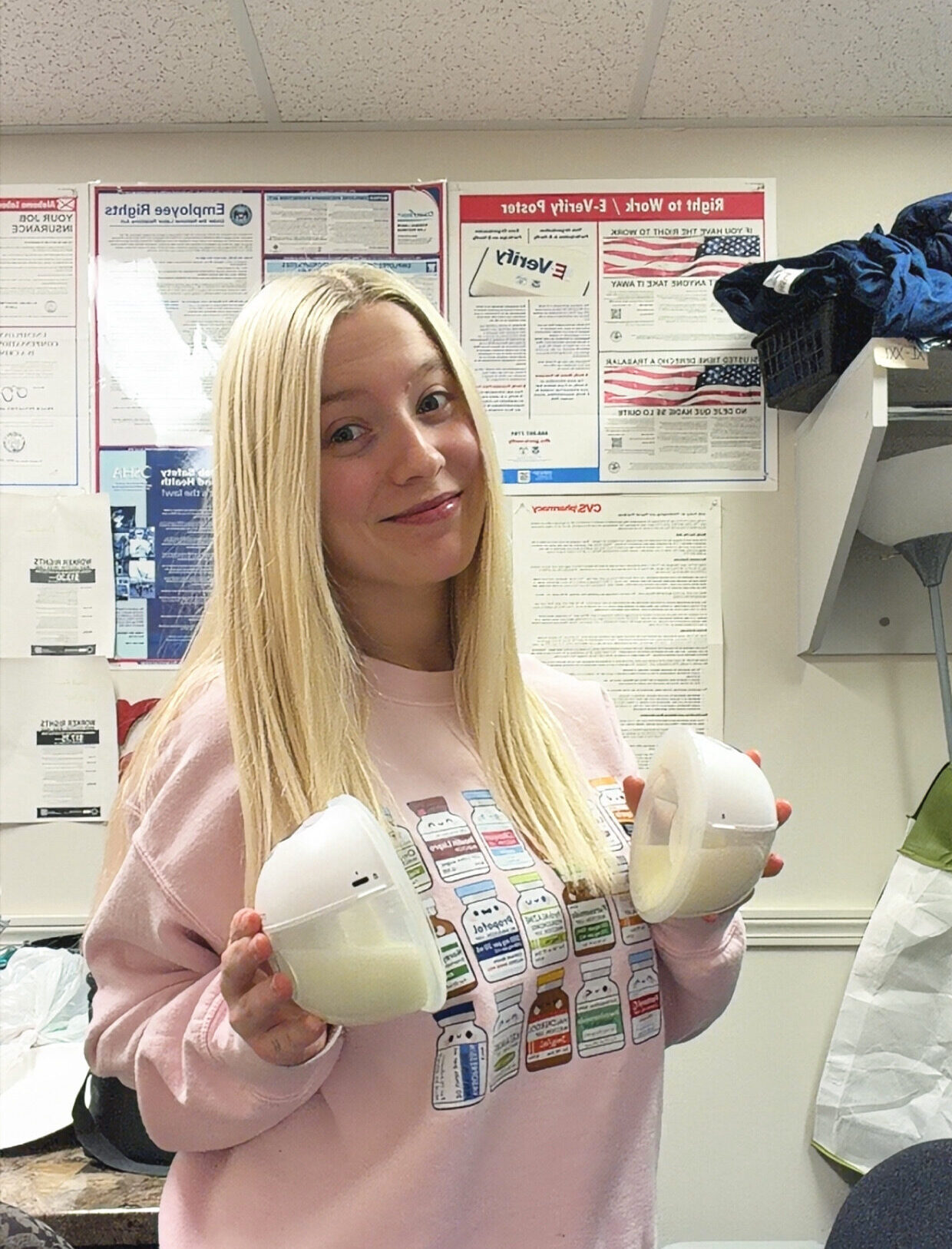Despite nourishing babies for millennia, the alchemy of human breast milk remains mysterious. One unknown is how ingredients in the milk, which vary based on a mother’s diet and environment, can affect a baby’s health. Now, after scrutinizing the makeup of milk made by humans and mice, researchers report that one ingredient—a type of amino acid in whole-grain foods called betaine—appears to improve long-term metabolic health by fostering growth of beneficial bacteria in the newborn gut.
Carles Lerin, who studies pediatric obesity at Sant Joan de Déu Barcelona Children’s Hospital, started to research breast milk out of frustration: He longed for new ways to tackle, and ultimately prevent, childhood obesity. Some studies have shown a slight increase in obesity risk in formula-fed babies, and Lerin wondered whether certain ingredients in breast milk might make a difference.
Some studies have shown a slight increase in obesity risk in formula-fed babies, and Lerin wondered whether certain ingredients in breast milk might make a difference.
With then–graduate student Sílvia Ribó and obesity researcher David Sánchez-Infantes at the same institution, Lerin turned to an existing study that included 34 mother-baby pairs from Oklahoma; all the babies had been exclusively breastfed, and other researchers had stored samples of breast milk and taken detailed records of their growth and health in early infancy. Lerin and his colleagues hoped to identify substances that might be associated with rapid early growth, which has been linked to later obesity. One stood out: betaine, which was linked to that unwanted growth when levels were low.
To determine whether betaine could actually control growth in newborns, Lerin and colleagues moved on to mice. Mice that had just given birth were randomly assigned to either a normal diet or a diet with extra betaine, which passed into the mothers’ milk. Pups that got the betaine-enriched milk weighed slightly less than control animals, and the difference endured into adulthood: At about 6 months, those that got extra betaine weighed about 10% less than controls, the researchers report today in Science Translational Medicine.
The effect was more pronounced in pups whose mothers were obese. Just as in human babies, mouse pups born to obese mothers are at higher risk of being overweight, so this finding suggests extra betaine might be especially helpful to those pups, leading to healthier growth.
As the researchers tried to figure out why betaine might be good for metabolism, they hit on something intriguing: In the mouse pups, the substance led to a temporary increase in healthy gut bacteria called Akkerrmansia. A second group of 109 babies and mothers, from Valencia, Spain, bolstered this connection. More betaine in breast milk was associated with more Akkerrmansia in the babies’ fecal samples at 12 months of age. Other studies have shown lower levels of Akkermansia in humans and animal models are associated with obesity and other metabolic conditions.
The results suggest breast milk is influencing species beyond those gulping it down—namely, microbes in the gut, says E. A. Quinn, a biological anthropologist at Washington University in St. Louis who studies how high altitude can affect breast milk composition. “I think the most exciting thing about this paper for me is that it really is starting to show that breast milk is such a complex system. … We are at the earliest stages of understanding all this,” she says.
The results suggest breast milk is influencing species beyond those gulping it down—namely, microbes in the gut
“Does breast milk composition in fact ‘program’ a child’s metabolism?” wonders Elvira Isganaitis, a pediatric endocrinologist involved in the Oklahoma breast milk study and a co-author on the new paper. A handful of previous studies have suggested breast milk ingredients can alter an offspring’s gut. Another found that, in mice, maternal exercise increases healthy carbohydrates, called oligosaccharides, in breast milk.
Quinn wonders, too, whether the apparent effects of betaine on Akkermansia could also explain some benefits in adults of the Mediterranean diet, which is abundant in betaine-rich grains like quinoa. A recent study suggested betaine may prevent obesity in adult mice by modulating healthy gut microbes, though a small 2018 trial offering betaine supplements to obese people with prediabetes didn’t show much benefit.
For Lerin, the key question is whether the effects in mice hold up in babies. He recently began a small clinical trial that aims to recruit 50 mothers who are overweight or obese and who are breastfeeding, along with their babies, and randomize the mothers to extra betaine supplements or a placebo. Although Lerin doesn’t recommend that new mothers make a run on betaine supplements, “I would advise to eat whole grains and quinoa,” he says—a diet that has no downside even if betaine proves less potent than he’s hoping.
Another important question is how to support formula-fed babies. It might be possible to add betaine to formula, he says, but because such a study involves directly modifying a baby’s diet rather than the mother’s, it’s more ethically and logistically complicated, and will likely have to wait until current clinical trials yield results.
This article was first published by Science Magazine. You can read the original article here.


















